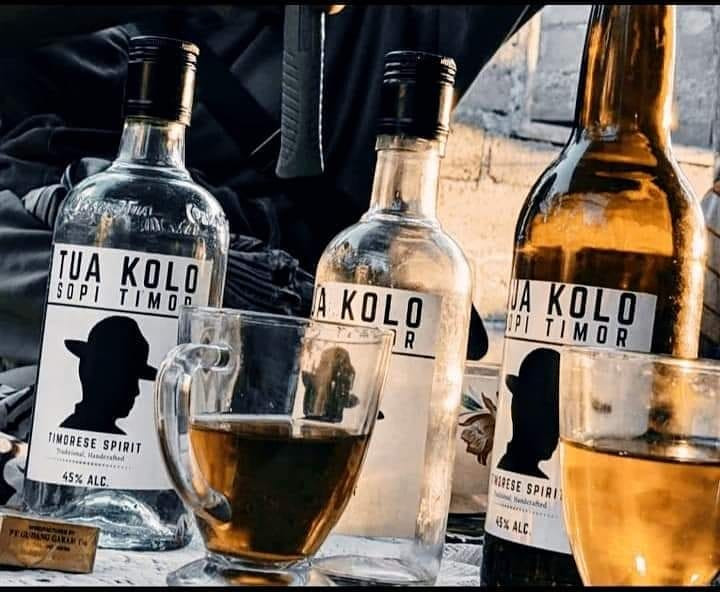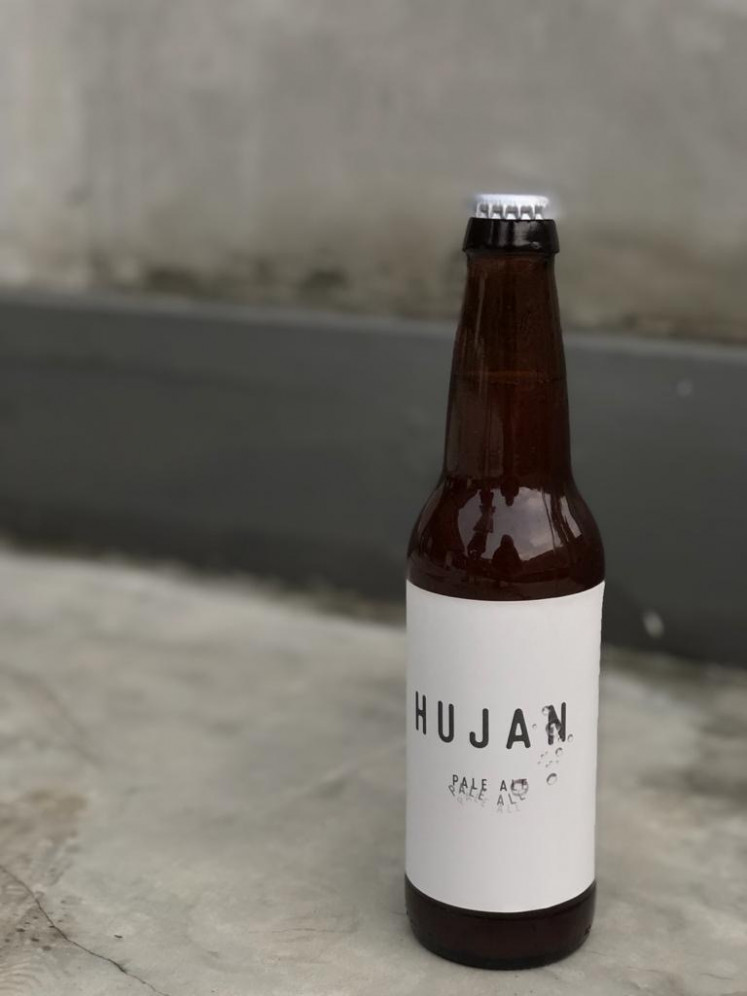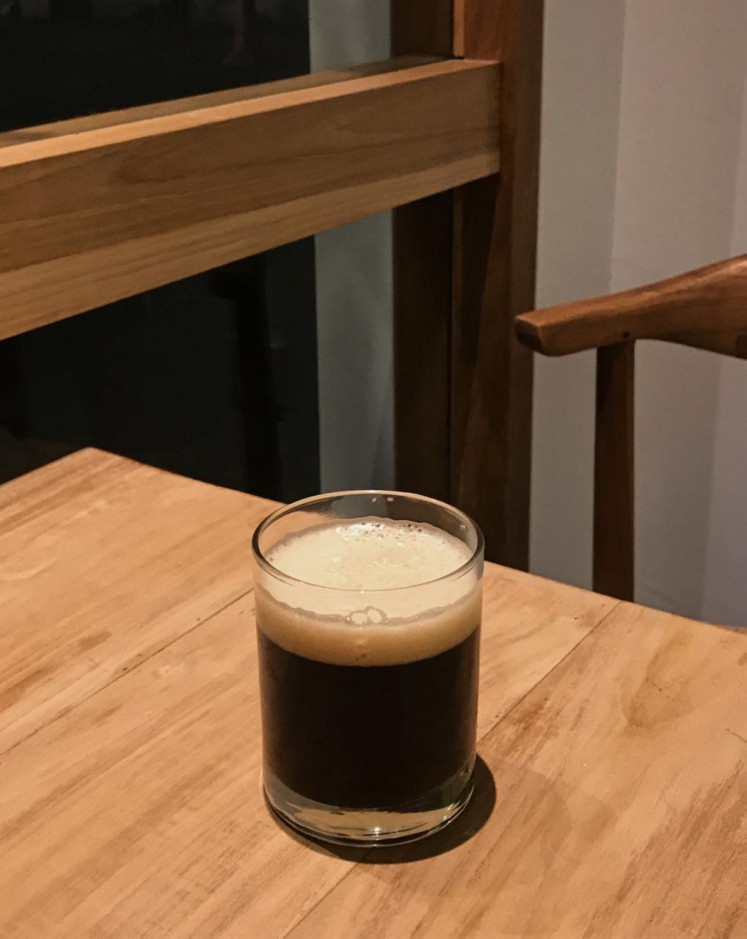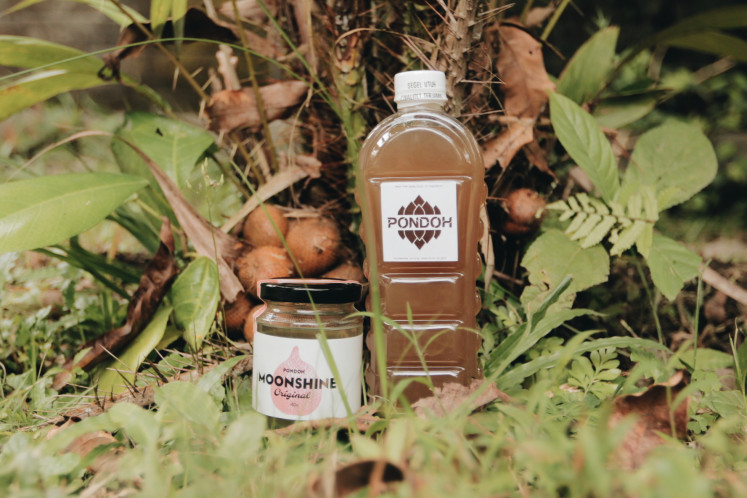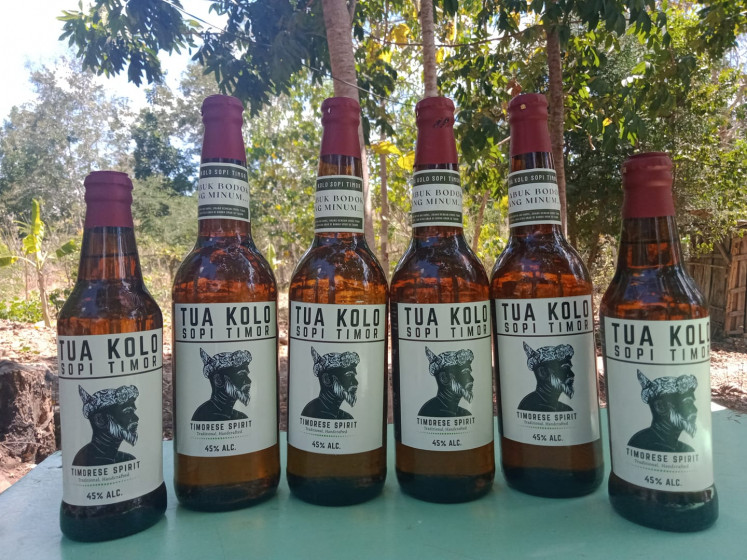Popular Reads
Top Results
Can't find what you're looking for?
View all search resultsPopular Reads
Top Results
Can't find what you're looking for?
View all search resultsIndonesia’s rich and complex independent alcohol industry
There hasn’t been much talk about the many independent breweries springing up around the country, selling their small-produced liquors through independent channels without any clear regulation.
Change text size
Gift Premium Articles
to Anyone
L
ast week saw the controversy around Indonesia’s alcohol investment plan brewing in the public sphere, with a revocation of three provisions of the third appendix of Presidential Regulation (Perpres) No. 10/2021 by President Joko “Jokowi” Widodo. The debates that sprung up from the more conservative factions and those who support the provisions revolve around cultural norms, the potentially negative impacts of alcohol, its potential to open up job opportunities and regulating an uncharted market.
Yet there hasn’t been much talk about the many independent breweries springing up around the country, selling their small-produced liquors through independent channels without any clear regulation. If regulated, these producers could grow to be an important part of Indonesia’s economy, but for now, they remain underground as passion projects.
Randy David Saputra, 23, tax consultant and founder of Bier Tjap Oema in Bandung, West Java
Hujan Pale Ale, one of Bier Tjap Oema's drinks (JP/Courtesy of Bier Tjap Oema)What draws you to craft beer and when did you start brewing?
I grew bored of regular beers and joined a homebrewing club in my last year at Fullerton [California State University], where every week we visited and discussed beers in the microbreweries around California. It opened my eyes to the possibilities of exploration in beers. When I came home to Indonesia, I got acquainted with the local craft beer community in Jakarta and continued brewing in my hometown.
What types of beer do you produce?
I’m currently exploring how to make Bavarian Lagers but in the past, I have also made hazy IPAs [India pale ale].
Who is your customer base so far?
It’s mainly friends and family at the moment. I distribute my products in limited quantities; for example, to friends’ cafes. Once I can produce more consistently and in bigger batches, I’d like to distribute them wider.
What are your thoughts on Indonesia’s alcohol investment plan and its cancellation?
There are an upside and downside to it. There’s a potential within the local scene that goes unrealized — we could have created lots of job opportunities, export our products and even make our own subcategory of beer. But the controversy made its way to public consciousness and now more people are aware of [the local microbrewery scene]. If anything, it’s a start. From a purely political standpoint, though, I feel that these challenges exist because the alcohol industry is not as profitable as something like the cigarette industry just yet. From its excise tax alone, the cigarette industry raked in about Rp 700 trillion [US$48.73 billion] last year, whereas the alcohol industry “only” generated Rp 5 trillion. If there’s more revenue to be gained, I think the government will give its support.
Personally, how do you view alcohol?
It’s a nice companion to have, whether to pair food with or as something to accompany conversations. I’d like to one day make beers that go well with Indonesian dishes like fried rice.
Rangga Purbaya, local liquor distiller of Pondoh, Yogyakarta
Pondoh and Moonshine made from Salak Pondoh in Yogyakarta. (JP/Umar Wicaksono)How’s your business doing during this pandemic?
There’s not much going on; [business] is still going up and down. We still make the same drink, the classic Pondoh, a moonshine liquor, and we're currently experimenting with making Pondoh Tuak with different yeasts and processes.
What are your opinions about the Perpres?
When it was launched, we were happy. It means that more opportunities are open for local liquor distillers. Although personally, Pondoh will not be too affected because the areas to which the law is applied are also limited. But the repeal of this law was like giving us nothing but empty hope. It wasn't really surprising, though. From the start, we were aware that resistance against this law would be high.
In your opinion, what potential could actually be realized by the enactment of this law?
It would certainly give the possibility of law changes in other areas, too. Indonesia’s local alcohol industry has been growing rapidly in the last five years and this has been really fun. And if we want to see it from a more productive perspective, the discourse on local liquor can be deepened. Discussions about local liquor should go beyond moral [issues], involving academicians, researchers and anthropologists. A lot of discourse can be started from local liquor pros and cons.
You’ve said that you wanted to create an association of local liquor distilleries in Yogyakarta. How is that going?
We, local distillers, are all connected, but because we don't have a legal basis, our activities are limited to sharing things. The possibility of obtaining legality is still far away. And as long as we don't have it, we will develop the business underground.
Felix Nesi, writer and liquor distiller of Tua Kolo Sopi Timor in South Timor Tengah regency, East Nusa Tenggara
Tua Kolo Sopi Timor, traditional liquor made by Felix Nesi, a writer born into a distiller family in South Timor Tengah (JP/Courtesy of Felix Nesi)How did you get started with Tua Kolo?
I was born in a family of [the traditional beverage] sopi distillers. Our life depended on it, until suddenly, my grandfather passed away. He fell from a lontar tree [which is needed to make sopi] and our business stopped, so I wanted to bring it back.
What do you make?
Sopi Tua Kolo, nothing more. But because lontar palm juice is seasonal, I am currently experimenting with using potatoes and trying to make vodka. We home-produce, making five to seven bottles a day, which is already a good start.
Do you think the Perpres and legality for local alcoholic drinks are important?
The government used the excuse of boosting the economy and uplifting traditions, but on this matter, the law doesn’t speak for us small distillers. The points are not in our favor; the only ones who will benefit are the big players. Traditional alcoholic drinks are only regulated in one absurd, unclear article.
For example, if this law gives me the legal documents and investment as a traditional alcohol distiller, this means that I will be subject to the same regulations as the big alcohol producers, including taxes. I will be taxed 250 percent per bottle, even though my business scale is at home, producing only five to seven bottles per day. So far, we’ve sold them for Rp 100,000 — who would want to buy our products if they cost Rp 350,000? Whereas here, sopi is most needed for ritual needs, and the ritual costs Rp 500,000. If their fee is spent on sopi, then how can they buy betel nuts and other equipment?
What do you think should be done by the government?
First, I think the most important thing is to make a clear separation and definition between the industrial and traditional distillers. Then, education. In Timor, there are many police, soldiers, and customs officers who come from Java; they control the alcohol regulations here.
These people should understand that the Timorese relationship with alcohol is different from the Javanese. Sopi connects us to our ancestors, the living and the dead. I have never encountered a traditional ritual that does not use sopi. These officers suddenly came, then immediately said that alcohol was haram and destroyed one’s morals, when in fact, it is a tradition that has gone on for generations.
What are your dreams for Tua Kolo Sopi Timor?
I haven't got any big dreams, but the important thing is to be able to run this business, especially during a pandemic. Many people depend on my business, including families and sap farmers. I also want these people to be able to work in peace. I just want to sell drinks legally, even though it's considered haram.

